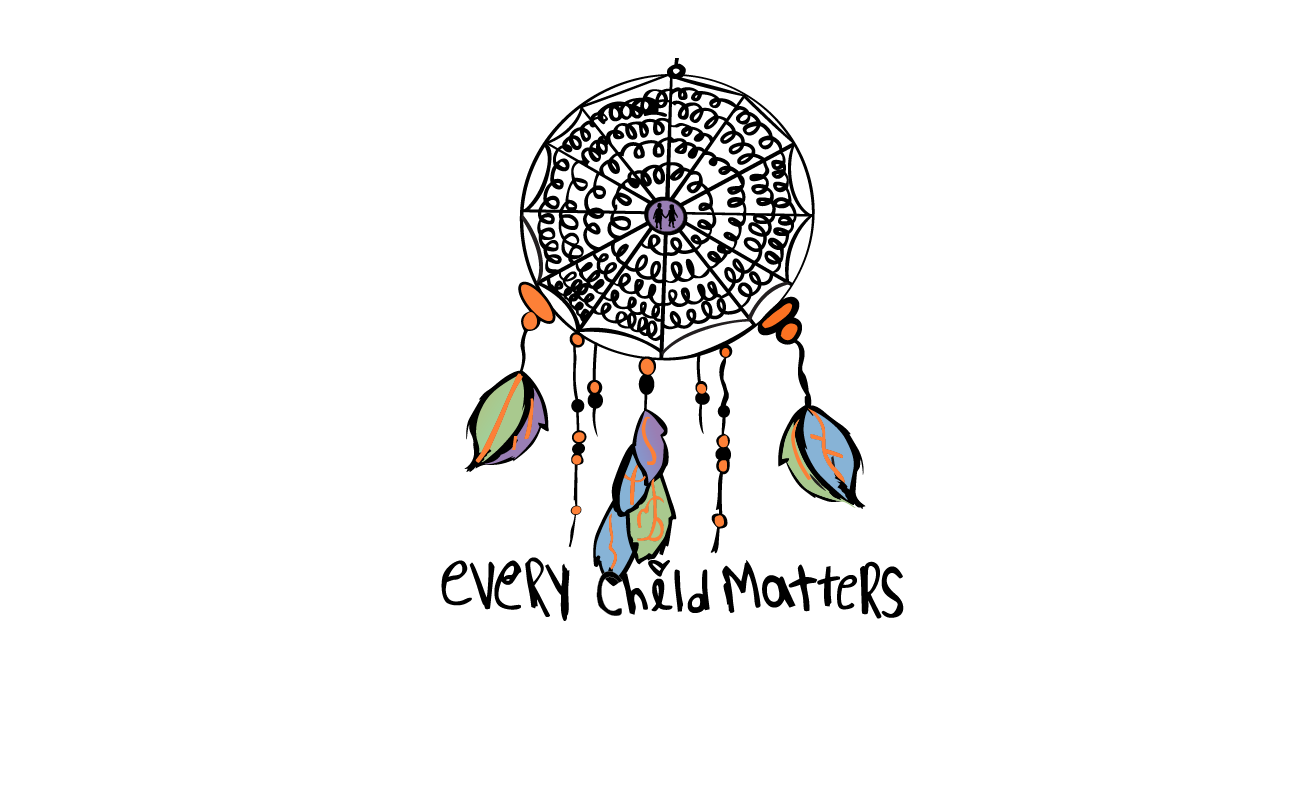
Design by Willow Commandant, Age 13
This year, the Government of Canada passed legislation to make September 30th a federal holiday, National Day for Truth and Reconciliation. “The day honours the lost children and Survivors of residential schools, their families and communities” and calls for public commemoration of the tragic and painful history and ongoing impacts of residential schools. OACAS and its staff honour this important day. Staff will be participating in various local initiatives and activities centred around Truth and Reconciliation, after which we will come together to discuss our experiences and learnings.
September 30th is also the eighth annual Orange Shirt Day, an Indigenous-led day that honours the children who survived residential schools and remembers those who did not. It is a day to learn about and discuss both the legacy, and current realities, of colonial systems and structures, and to continue the work needed to dismantle them.
Orange Shirt Day was created as part of the St. Joseph Mission Residential School Commemoration Project and Reunion events in Williams Lake, BC. There, Phyllis Webstad told her story of her first day of residential school. She had been gifted a new orange shirt by her grandmother, which she was excited to wear. However, it was immediately taken from her when she got to the school and she never saw it again. This was common practice at residential schools, where children’s personal items were removed, they were often forced to cut their hair, and they were prohibited from speaking their traditional language(s) or practicing their cultural traditions. This was part of the systematic attempt to assimilate First Nations, Métis, and Inuit children into settler society and destroy their connections to their families and communities. It was an act of genocide.
Child welfare has a deep historical connection to the residential school system. As part of our work to share truth and work towards reconciliation, we created a set of frequently asked questions that explores the history of residential schools, their relationship to the child welfare system, and how Ontario’s Children’s Aid Societies are committed to reconciliation with First Nations, Métis, and Inuit communities.
OACAS acknowledges the harmful role that child welfare has played, and continues to play, in the lives of Indigenous children, youth, and families in Ontario. We continue to work with Indigenous partners and member agencies to move forward on our reconciliation journey. We are committed to addressing the overrepresentation of Indigenous children, youth, and families in the child welfare system, which we recognize is a direct result of colonization, anti-Indigenous individual and systemic racism, and the trauma of residential schools.
This year, 6,509 unmarked graves have been uncovered at residential school sites so far. This serves as a stark reminder of the history of our country and the ways in which we have and continue to enact violent, harmful practices and policies against First Nations, Métis, and Inuit communities. We encourage our members to continue to confront the truth of the harmful legacies of our system and continue the important work of reconciliation.
** Former Residential School students can call 1-866-925-4419 for emotional crisis referral services and information on other health supports from the Government of Canada.
Indigenous peoples across Canada can also go to The Hope for Wellness Help Line 24 hours a day, 7 days a week for counselling and crisis intervention.
Call the toll-free Help Line at 1-855-242-3310 or connect to the online chat. **